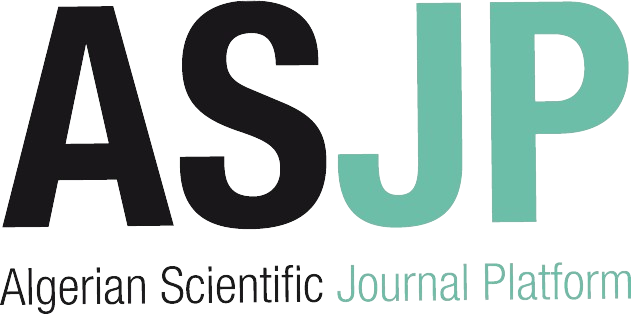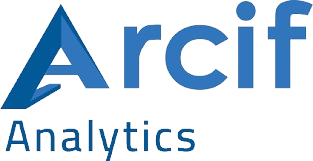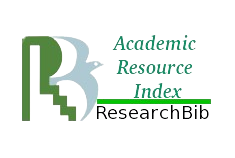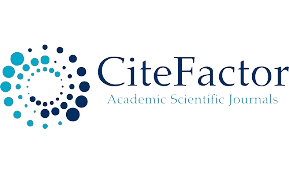Ethics and publication guidelines
This guide aims to establish a code of conduct directed towards the parties involved in managing and publishing scientific results in linguistics publications, editorial teams, authors, and paper reviewers.
1. Editorial Team
The Linguistics Editorial Board (referred to as the “Editorial Team” below) is responsible for the published content. Therefore, they must ensure its scientific quality and avoid unethical practices in disseminating research results and managing the publication of works in a timely manner.
The mentioned responsibility entails adhering to the following principles:
-
Neutrality
The Editorial Team must remain neutral when handling proposed works for publication and respect the intellectual independence of authors, acknowledging their right to respond in case of negative evaluations. Papers presenting negative research results should not be excluded.
-
Confidentiality
Members of the Editorial Team are obligated to maintain the confidentiality of submitted texts and their content until accepted for publication. Only then can their titles and authorship be disclosed. Similarly, any member of the Editorial Team must not use data, arguments, or interpretations from unpublished works for their own research without explicit written consent from the original contributors.
-
Peer Review
The Editorial Team must ensure that published research papers have been evaluated by at least two specialists in the field through a fair and unbiased review process. The peer review method, tailored to the scientific community the journal or group serves, should be transparent: double-blind (reviewers’ identities are concealed), blind (the identity of the evaluator is hidden), or open (no identity concealment). If one of the reviews is negative, a third report will be requested.
The Editorial Team may consider rejecting an author’s request for evaluation by specific individuals (if the evaluation is not anonymous) if the reasons provided are deemed reasonable. The team is not obligated to dismiss these specialists if their opinions are considered essential for a proper evaluation.
Individuals proposing a work for review may suggest up to three specialists for this task. The Editorial Team reserves the right to accept or reject this suggestion without being obliged to inform the concerned parties of the decision.
The Editorial Team must ensure the authenticity of received works and their unpublished nature. The evaluation process should also include monitoring these aspects, identifying literary theft, self-plagiarism, excessive or repetitive publication, understanding them as full or partial copies, or works that have been modified and published by the author to appear different. The review must also explicitly mention content subject to peer review.
The Editorial Team should appreciate and acknowledge the contribution of those who collaborate in evaluating works submitted to the journal or group. Similarly, academic authorities should encourage recognition of peer review activities as part of the scientific process, and they should refrain from using reviewers who provide low-quality, inaccurate, disrespectful evaluations or those who submit reviews after the specified deadlines.
-
Acceptance or Rejection of Works
The responsibility for accepting or rejecting a work for publication lies with the Editorial Team, based on the provided reports. These reports should justify their opinion on the quality of the work concerning its appropriateness, authenticity, and clarity of presentation.
The Editorial Team may reject submitted papers outright without resorting to an external consultation process if deemed inappropriate due to a lack of the required level of quality or non-alignment with the scientific goals of the journal or group, or if there is evidence of scientific fraud.
-
Disclaiming Published Articles in Journals and Violation Notices
The Editorial Team reserves the right to disclaim already published articles that have been subsequently determined to be unreliable due to both involuntary errors and scientific misconduct, such as data fabrication, manipulation, or unethical practices. The aim of disclaiming is to correct the published scientific production and ensure its integrity.
Duplicity conflicts arising from simultaneous publication of an article in two journals will be resolved by specifying the date of receipt of the work in each. If only part of the article contains an error, it can be corrected later through an editorial note or correction.
In case of a conflict, the journal will request explanations and relevant evidence from the author or authors to clarify the situation. A final decision will be made based on these inputs.
The journal will publish a disclaimer notice in its printed and electronic versions, stating the reasons for this action, to distinguish between intentional misconduct and unintentional errors. Similarly, the journal will notify the authorities of the institution to which the author or authors of the article belong for license revocation. The decision to disclaim the text should be made as quickly as possible to avoid citing such erroneous work in future research.
Articles not approved will be retained in the electronic version of the journals, with a clear warning that they are unauthorized articles, to differentiate them from corrections or other comments. In the printed version, the disclaimer will be announced as soon as possible through the editorial or correspondence, under the same conditions as in the electronic version.
As a preliminary step before the final disclaimer of an article, the journal may issue a violation notice, providing the necessary information under the same conditions as in the case of disclaimer. The violation notice will be retained for the minimum time necessary and will end with either withdrawal or formal disclaimer of the article.
- Authorship Rules
The rules for submitting original manuscripts to each journal or group (referring to the characteristics of the work, the format and accuracy of images, the bibliography system, etc.) should be general.
-
Conflict of Interest
Conflict of interest arises when a signatory to a work received by the journal or group, among other possible positions, is a member of the editorial team, or has a direct personal or professional relationship, or is closely connected in research – in the past or present – with anyone involved. Specifically, editorial team members must refrain from handling the original copy when faced with any of these situations or similar ones:
– A relationship,
– Current friendship or clear enmity,
– Being part of the same research group,
– Participation in or joint supervision or management of a doctoral thesis in the past ten years,
– Advocacy for a doctoral thesis under the supervision or joint management of the author or authors in the past ten years,
– Collaboration or cooperation in publications or patents in the past five years,
– Collaboration in other economic, scientific, and technological activities,
– A contractual relationship or financial participation in national or international research projects, from public or private entities, or of any other nature, in the past three years. The editorial team will also refrain from selecting reviewers who may be affected by any of these situations. When evaluations are conducted blindly, maintaining only the confidentiality of the reviewer’s identity, the editorial team will include reasons for abstaining from voting in the evaluation form, allowing the reviewer the opportunity to identify them, and if necessary, abstain from voting.
2. Authorship
Authors of texts submitted for publication in linguistics are primarily responsible for their content. For this reason, they are obligated to adhere to an ethical standard designed to ensure their authenticity and proper attribution of authorship, among other aspects. Inappropriate behavior may lead to disavowal of the published content, as stipulated in section 1.5 of this guide.
-
Publishing Rules
Texts submitted for publication must be the result of original and unpublished research. They should include data obtained and used, as well as an objective discussion of their results. Sufficient information must be provided to allow any specialist to reproduce the conducted investigations and confirm or refute the interpretations defended in the work. Authors must adequately cite the origin of ideas or verbatim phrases taken from other previously published works, as outlined in the journal or group regulations. When images are included as part of the investigation, it must be clarified how they were created or obtained correctly if necessary for understanding. If reproducing previously published visual materials (figures, images, maps, etc.), the source will be cited, along with relevant reproduction permissions if necessary. Unnecessary fragmentation of journal articles should be avoided. If a work is too extensive, it can be published in several parts, with each part developing a specific aspect of the overall study. Different relevant works should be published in the same journal to facilitate interpretation by readers.
-
Originality and Plagiarism
Authors must ensure that the data and results presented in the work are original and not copied, invented, distorted, or manipulated. Literary theft in all its forms, self-plagiarism, excessive or redundant publication, as well as data invention or manipulation, constitute serious ethical violations and scientific fraud. Authors will not submit to the Ministry of Health the original copies submitted previously for consideration by another journal, nor will they submit it to another journal until they receive notice of rejection or withdraw it voluntarily. However, a work that expands on another work that has already appeared as a brief note, communication, or summary in conference proceedings may be published, provided that the text it relies on is adequately cited, and the modifications include substantial changes from what has already been published. Secondary publications are also acceptable if they target entirely different readers, such as publications in different languages or versions for specialists versus the general public. These conditions should be specified, and proper citation from the original publication should be made.
-
Authorship of the Work
In the case of multiple authorships, the person appearing as responsible for the work must ensure recognition of those who contributed significantly to the conception, planning, design, execution, data collection, interpretation, and discussion of the work. Nevertheless, all signatories share responsibility for the submitted work. Similarly, the person acting as the responsible and corresponding author must ensure that those who signed it have reviewed the final version of the work, agreed to it, and given their consent for possible publication. The person responsible for the work must ensure not to delete any signatures responsible for the work or add others, thereby adhering to the common authorship standards mentioned above, avoiding fictitious or gifted authorship, which constitutes unethical scientific practice. Similarly, appropriate recognition should be given for the contribution of other individuals not listed as signatories or responsible for the final version of the work, as a way of acknowledgment. If deemed necessary or requested by the signatories, the published version will briefly describe the individual contribution of each signature member in the collaborative work.
-
Information Sources and Funding
In the text of the work, publications that influenced the research should be identified. Therefore, the original sources upon which the information in the work is based should be specified and cited in the bibliography. However, irrelevant citations or references to similar examples should be avoided, and signals to research already created in the scientific knowledge base should not be abused. Authors should not use information obtained privately through conversations, correspondence, or discussions with colleagues on this topic unless they have explicit written permission from the source of their information and received this information in the context of scientific advice. The publication must clearly and accurately indicate all funding sources granted for the study, mentioning the specific entity, private or public, responsible for the mentioned funding, and the identification code, if any. This information will appear in the published work.
-
Serious Errors in Published
When an author or authors discover a serious error in their work, they are obligated to notify the officials of the journal or group as soon as possible to amend, withdraw, or retract their work, or to publish a correction or errors. If a potential error is discovered by any of the editorial team members, the authors are obliged to prove the validity of their work. The process of resolving these conflicts is described in the section.
-
Conflict of Interest
If there is any commercial, financial, or personal link that may affect the results and conclusions of your work, the work text must be accompanied by a statement explaining these circumstances, which will appear in the published version of the work.
3. Evaluation of Scientific Journal Articles and Studies
Individuals participating in the evaluation play a crucial role in the process that ensures the quality of the publication. They assist the editorial team at DH in making editorial decisions, contribute to improving published works, and provide assurance of scientific credibility.
-
Confidentiality
Reviewers must treat the work to be reviewed as confidential until publication, during the review process, and afterward. Under no circumstances should information, details, arguments, or explanations from the review text be published or used for personal benefit, the benefit of others, or to harm third parties. Only in exceptional cases should advice be sought from other experts, and such consultations must be reported to the human rights department.
-
Objectivity
Those conducting the evaluation must objectively judge the overall quality of the work, including the information supporting the work’s hypothesis, theoretical and empirical data, and their interpretation, without neglecting the presentation and writing of the text. Similarly, criticisms should be specific, objective, and constructive in your comments. They should discuss their judgments appropriately, avoiding adopting hostile positions and respecting the intellectual independence of the work’s author.
-
Warning Against Similarity
Reviewers should be cautious about any related similarity between the work being evaluated and another published or under review in another publication known to them. Similarly, attention should be drawn to texts or data stolen from others or from the same author or authors of the work under evaluation, or in cases of suspicion or certainty based on strong evidence that they are forged, invented, or manipulated.
-
Prompt Response
Anyone conducting an evaluation must act promptly and submit their report within the agreed-upon time. Any potential delays should be reported to the human rights department.
If the person conducting the evaluation does not consider themselves capable of judging the assigned work or believes they cannot perform their task within the agreed-upon period, they must notify the health department as soon as possible.
-
Acknowledgment of Information Sources
Anyone conducting an evaluation must verify the citation of relevant published works on the subject. To this end, they will review the bibliography included in the text, proposing the removal of unnecessary or redundant references or incorporating other references not cited.
- Conflict of Interest
Anyone conducting an evaluation must refuse to review the work when they suspect or know that they are listed in any of the positions that may affect their judgment of the mentioned work, as outlined in this guide.
Conflict of interest may also arise when the work to be evaluated is closely related to what the reviewer is currently developing or has already been published. In such cases, when in doubt, you should relinquish the assigned task and return the work to the editorial team, explaining the reasons for this decision.








